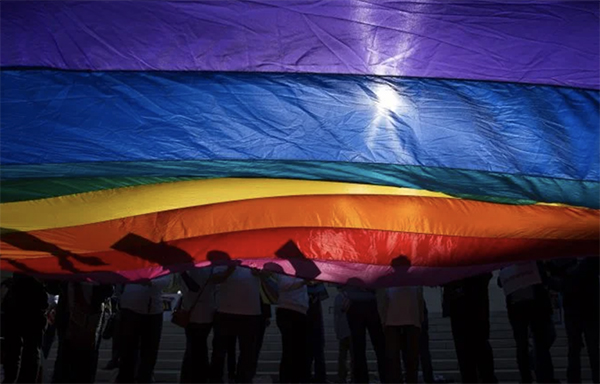
WINDSOR TERRACE — Last week, a federal ruling in North Dakota flew under the radar that allows Catholic medical professionals, hospitals and organizations the right to refuse performing or providing insurance coverage for gender transition procedures, or insurance coverage for gender transition drugs, if it violates their religious beliefs.
The ruling was on a 2016 lawsuit filed by the Catholic Benefits Association — an association of 65 Catholic dioceses and 1,100 Catholic church affiliates and private business owners — against the United States Department of Health and Human Services over what is known as the “transgender mandate” of the Affordable Care Act.
“This ruling is a very important victory protecting doctors and hospitals that allows them to continue providing top notch care to everyone in accordance with their best medical judgement and religious beliefs,” Luke Goodrich, vice president and senior counsel of the Becket Fund for Religious Liberty law firm told The Tablet.
The decision covers all current and future members of the Catholic Benefits Association. It also covers the Sisters of Mercy, the University of Mary in North Dakota and Sisters of Mary of the Presentation Health System in North Dakota.
The Becket Fund filed a separate lawsuit against the “transgender mandate” on behalf of the latter three organizations in 2016. The judge eventually consolidated the two lawsuits.
In addition, the ruling prevents the United States Equal Employment Opportunity Commission from issuing similar mandates or enforcement actions based on how it interprets sex discrimination under Title VII of the 1964 Civil Rights Act.
The statute prohibits discrimination based on race, religion, national origin, and sex. In a conversation with The Tablet, Doug Wilson, CEO of the Catholic Benefits Association, said it’s “exceptionally important” that the EEOC and Title VII were included.
“If Health and Human Services couldn’t enforce the [Transgender Mandate] we felt they would look to the EEOC to make employment rules that mandated participation. Then we further thought that based on discrimination action Title VII might be brought in,” Wilson said.
After Joe Biden’s inauguration, he signed an executive order directing all federal agencies to implement a 2020 Supreme Court decision that found Title VII covers LGBTQ individuals.
Last week, several prelates including Cardinal Timothy Dolan of New York and Archbishop Paul Coakley of Oklahoma City spoke out against the order in a statement, stating “it threatens to infringe the rights of people who recognize the truth of sexual difference or who uphold the institution of lifelong marriage between one man and one woman.”
In a statement after the ruling, Wilson noted that the Catholic Benefits Association members can now “continue to provide the highest quality employment benefits to their 90,000 employees and their families, while living their religious beliefs.”
Another 2016 lawsuit against the “transgender mandate,” however, didn’t get the same permanent injunction: Filed by the Becket Fund on behalf of the Franciscan Alliance, the federal judge instead granted a vacatur, which essentially set aside the mandate.
“We were glad to get the vacatur but we also think it’s important to get the injunction to tell the government they’re not allowed to have this regulation,” Goodrich said.
For that reason, the Becket Fund has since appealed the ruling and it’s scheduled to be heard on March 2. The Biden administration still hasn’t made a decision on whether or not it will appeal the Catholic Benefits Association decision.
Andrea Picciotti-Bayer, a lawyer and director of the Conscience Project that supports religious freedom cases, cautions that while the Catholic Benefits Association ruling is important, its effects are limited, since only the plaintiffs are protected.
“The best way for the federal government to get out in front of this is to come up with a uniform rule, basically enacting what these two lower courts have ordered for all objecting Americans,” Picciotti-Bayer said.
“It goes to back to the protection of conscious rights and the protection of religious freedom. We don’t want everyone to have to go to court to be able to protect themselves. It’s much more preferable if the federal government takes the hint from the judiciary and does it,” she said.
Picciotti-Bayer also noted it’s important for the government to not pit those seeking gender reassignment against people with religious objections.
“When we’re protecting religious freedom by requiring exemptions or protecting rights it’s not at the expense of another party, it’s to protect the rights of the individual with the objection,” she said. “When making rules and even executive actions, it’s important to make sure in the quest for unity, part of that is not trampling on the constitutional rights of people you disagree with.”
